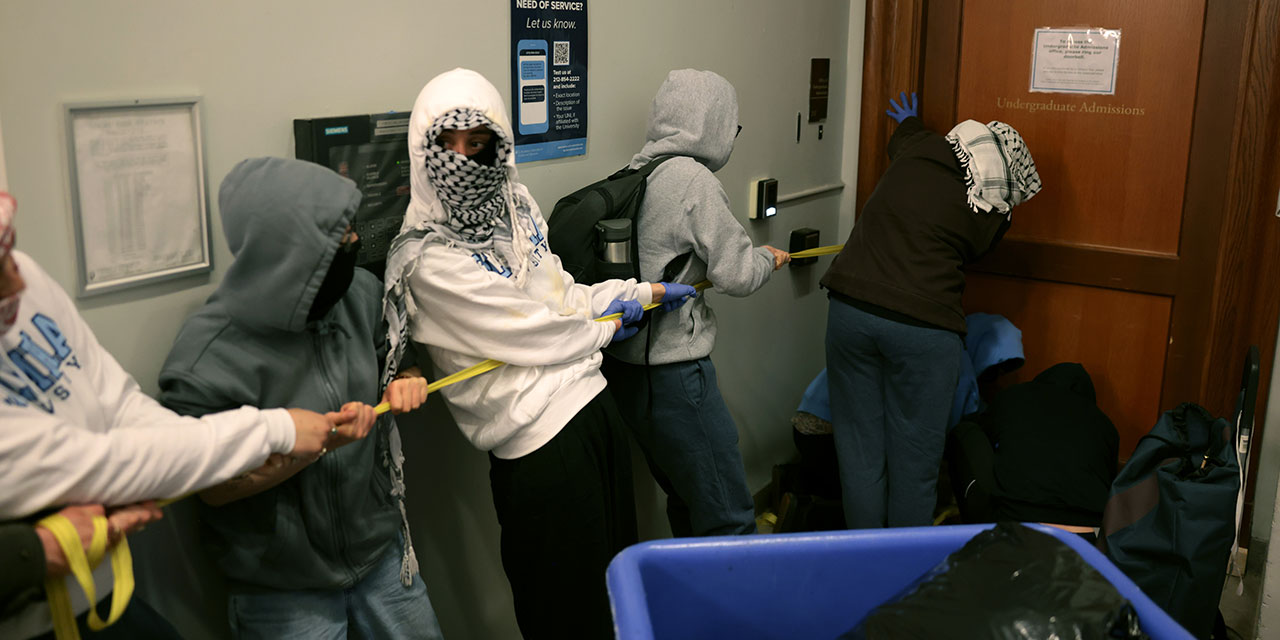
Instagram has reportedly removed the account of Columbia University Apartheid Divest. A rabid anti-Israel group that helped orchestrate disruptive, and often illegal, demonstrations on Columbia’s campus, CUAD had posted on the social-media site regularly, providing critics with evidence of the group’s radical and lawless conduct. But in response to some pro-Israel groups, which pressured social-media platforms to crack down on anti-Semitic accounts, Instagram deleted the page.
The decision is rooted in the same confusion that characterizes our national conversation about speech, accountability, and addressing anti-Western elements. Specifically, it confuses speech for actual harm, making exactly the mistake free-speech advocates have warned against for centuries. Instead of letting truth collide with falsehood and allowing sunlight to disinfect our discourse, Instagram stifling CUAD’s speech hampers Americans’ ability to hear the extremists in their own words.
Finally, a reason to check your email.
Sign up for our free newsletter today.
While removing its account was misguided, CUAD is unquestionably a malign force. The group advances the interests of foreign terrorist organizations and hostile regimes like Iran. Last spring, alongside anti-Israel groups like Students for Justice in Palestine, it transformed Columbia’s campus into a hotbed of disorder. CUAD’s demonstrations were often unlawful and included occupying buildings, damaging property, and engaging in discriminatory harassment on the basis of national origin against Jews and Israelis. Its lawlessness contributed to the more than 100 arrests on Columbia’s campus—albeit few prosecutions, or even student expulsions. The group considers itself part of a “resistance” led by Hamas, Hezbollah, the Houthis, and other designated foreign terrorist organizations.
It’s understandable to want to crack down on CUAD and groups like it—to deport noncitizen members, prosecute ringleaders, and build the legal case for unraveling the civil-terrorist network that supports them. But Instagram’s apparent intervention represents the wrong approach.
By removing the page, Instagram inadvertently shielded CUAD from the most effective form of accountability: public scrutiny. It would be one thing if CUAD’s account had been a recruitment tool for organizing crimes. But it wasn’t. It was, rather, an archive of incriminating evidence that allowed the public to observe the group unfiltered.
We know what CUAD did—and why—because it bragged about its actions on social media. The account provided concrete evidence of who participated in which unlawful acts. Posts celebrating vandalism documented infractions that might otherwise have gone unrecorded. Most critically, its expressions of solidarity with designated terrorist groups created an unambiguous connection between its sympathies and its lawless actions.
This digital trail made it possible to separate fact from fiction when assessing CUAD’s behavior—essential for building the case against the group in the court of public opinion. I can say from experience: liberal mainstream outlets demand smoking-gun evidence of progressive organizations’ misdeeds before they’ll publish claims conservatives already know to be true. CUAD’s Instagram was a stockpile of smoking guns.
Now, that record has been scrubbed. When journalists or litigators need to substantiate claims about CUAD’s conduct or rhetoric, they’ll have to rely on archived links, which may not exist for every post. The group’s digital footprint has been partially erased—not, apparently, by CUAD in a moment of self-defense, but by a tech platform in a misguided attempt at content moderation. And it has achieved no clear benefit in the process. Columbia students are neither safer nor freer to enjoy a normal college experience as a result. Other Instagram users could scroll past CUAD propaganda before, and they are just as capable of doing so now.
This episode underscores the need to differentiate between consequences for unlawful conduct and counterproductive restrictions on expression. Removing students occupying quads or pouring cement down toilets does not implicate protesters’ speech rights. Enforcing rules against lawless conduct does not deprive the public of its ability to hear radical groups’ views. Instagram’s intervention, by contrast, confuses objectionable speech with harmful conduct and makes it harder to hold CUAD accountable in the court of public opinion.
The battle against campus extremism requires more transparency, not less. Driving radical groups underground doesn’t diminish their influence, but it does make them harder to monitor and counter effectively. That helps no one—except, perhaps, those with something to hide.
Photo by Alex Kent/Getty Images
City Journal is a publication of the Manhattan Institute for Policy Research (MI), a leading free-market think tank. Are you interested in supporting the magazine? As a 501(c)(3) nonprofit, donations in support of MI and City Journal are fully tax-deductible as provided by law (EIN #13-2912529).
Source link















